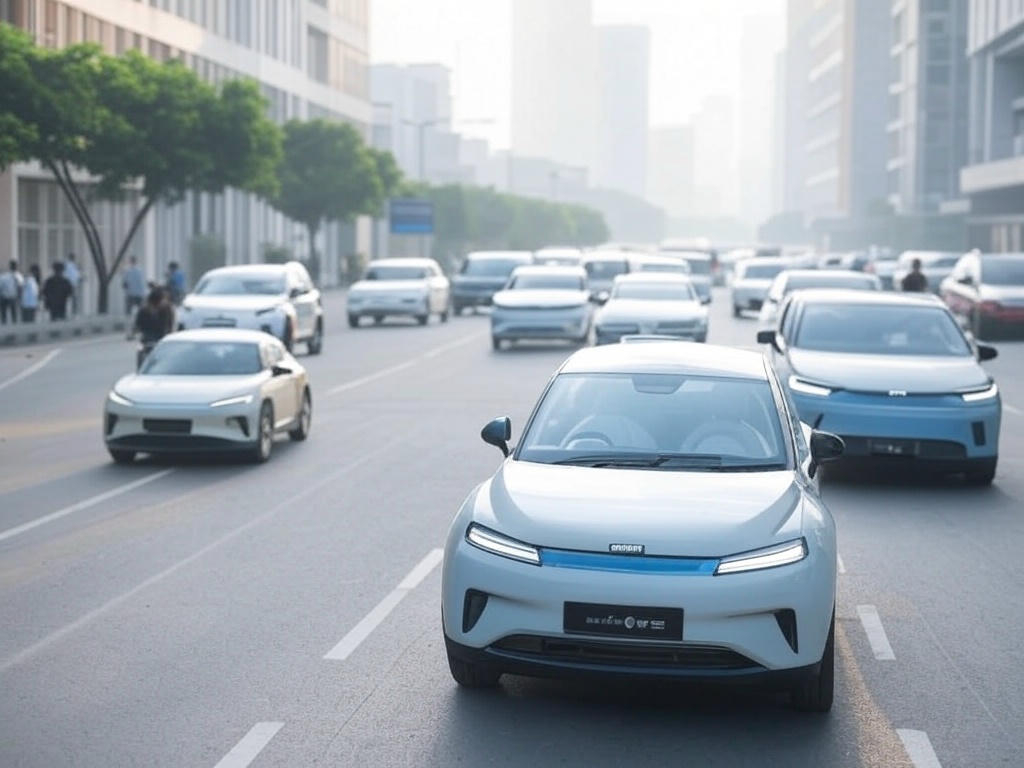India’s Electric Vehicle (EV) Revolution: Record-Breaking Sales Signal a Greener Future
India’s electric vehicle (EV) sector is witnessing unprecedented growth, driving a landmark shift in the country’s transportation history. In 2024, EV sales surpassed a record high of 1.94 million units, growing 27% year on year from 2023. Such a high surge indicates the focus of the nation on sustainable transport and the widespread consumer adoption of electric vehicles.

Unprecedented Growth Across Segments
The growth of the EV industry is reflected across different vehicle segments. Two-wheelers have grown particularly strongly, with sales over 1.14 million units in 2024, making up 59% of total EV sales. This reflects the convenience and cost-effectiveness of electric scooters and motorcycles as a means of daily commuting in cities.
Passenger electric vehicles also saw a remarkable boost. In April 2025 alone, the sales of electric passenger vehicles were up by 57% over the last year, reaching a total of 12,233 units. Heading this category were Tata Motors at 4,436 units sold, followed closely by JSW MG Motor India and Mahindra & Mahindra, reflecting a dynamic and competitive market scenario.
Government Initiatives Driven Behind the Boom
The role of government policies has been fundamental in driving the EV market forward. The Faster Adoption and Manufacturing of Hybrid and Electric Vehicles (FAME) scheme, state-level incentives, have contributed towards making EVs more affordable for the masses. In Delhi, for example, a new EV policy is planned to generate 20,000 jobs through enhanced charging and battery swapping infrastructure.
In addition, the government of Uttar Pradesh has gone a long way by opening the state’s largest electric vehicle factory, reflecting on its ambitions to become an EV manufacturing hub.
Infrastructure Development: Charging Ahead
The expansion of the EV market is inextricably linked to the advancement of charging infrastructure. Noticing this, many states are making investments in augmenting their charging networks. Delhi’s move to install charging points every 25 km on highways is a demonstration of this investment.
Yet, there are challenges. The entry of unregistered electric scooters, especially in urban areas such as Chennai, has brought safety and regulatory issues to the fore. Such vehicles tend to evade registration and insurance, and their presence threatens users and emphasizes the need for more stringent regulation enforcement.
Market Dynamics: Emerging Players and Shifting Shares
India’s EV competitive landscape is transforming at a lightning pace. Whereas Tata Motors had been a powerhouse, its share has come down from 61% in April 2024 to 36% in April 2025. The reasons for this trend are the cutthroat plans by rivals such as Mahindra & Mahindra and JSW MG Motor India, which have brought exciting EV offerings, receiving huge attention from consumers.
Financing and Affordability: The Roadblocks Ahead
Even with the encouraging trend, the EV industry has roadblocks, especially when it comes to financing. The existing financing environment is not transparent and is fragmented, and hence consumers find it hard to secure affordable loans for EV purchases. These challenges must be addressed in order to continue the momentum and achieve wider acceptance among various income groups.
Future Outlook: A Sustainable and Electric Tomorrow
Looking forward, the future of India’s EV industry looks bright. Forecasts suggest that by 2030, EVs may account for almost one-third of passenger vehicle sales in the country. Additionally, the size of the market is anticipated to expand from USD 11.36 billion in 2024 to around USD 1,053.10 billion by 2034, depicting a strong compound annual growth rate.
Conclusion
India’s electric vehicle industry is poised for a paradigmatic shift, fueled by consumer preferences, favorable government policies, and infrastructure upgrades. Despite challenges, most notably in financing and regulatory compliance, the trend is headed towards a greener, more sustainable transportation landscape. At Numone Technologies, we continue to focus on giving such pivotal industry shifts an insider perspective, keeping our readers updated and engaged with the most recent trends that shape our country’s mobility ecosystem.

Leave a Reply